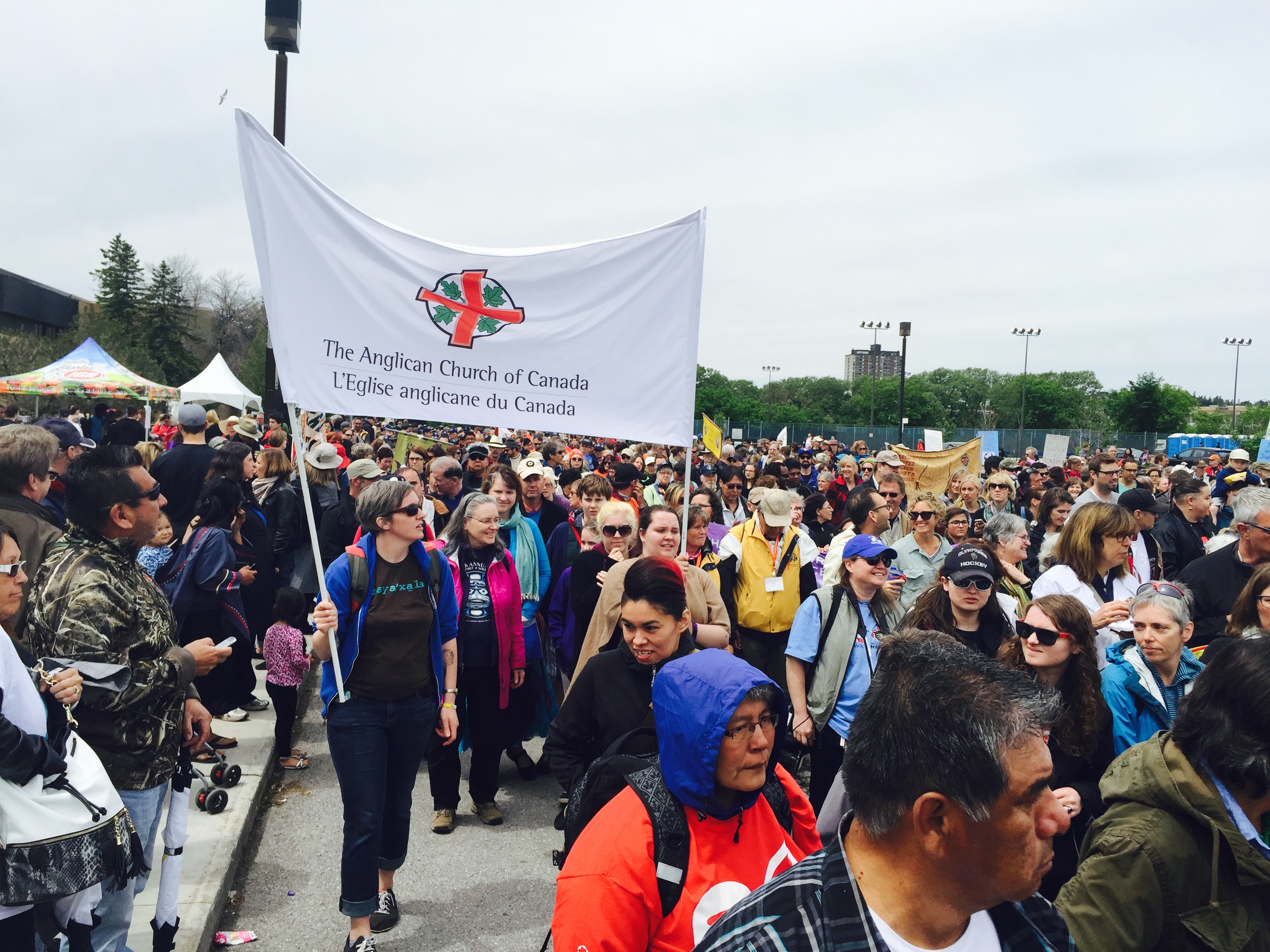Commission's End Begins Reconciliation Work
Church called to #22days of prayer and renewal as TRC concludes
Posted May 31, 2015

The Anglican Church of Canada is calling for 22 days of prayer and renewal in its commitment to healing and reconciliation for all the peoples of Canada—Indigenous and non-Indigenous. The #22days initiative kicked off with a Walk for Reconciliation attended by nearly 10,000 to mark the start of the Truth and Reconciliation (TRC) closing event in Ottawa. It will conclude with the National Aboriginal Day of Prayer on Sunday, June 21.
At the heart of the #22Days project - supported by Bishop Michael Bird and the national House of Bishops - is a commitment to listen to the stories of residential school survivors and work for positive change. The #22Days project includes a website with resources on the history of residential schools, the relationship of Indigenous peoples to the Anglican Church of Canada, the work of the TRC, and worship material for the National Aboriginal Day of Prayer and sacred stories telling the experiences of residential school survivors.
Listening was a significant part of KAIROS' Time for Reconciliation event which ran adjacent to the closing ceremonies of the Truth and Reconciliation Commission. "There is still much work for us to do to fully live the Primate's apology to residential school survivors," said The Reverend Bill Mous, who attended the event along with Su McLeod, Aidan Maloney and Siobhan Bennett on behalf of the Diocese. "Just as we were instrumental in animating the colonization process in Canada, so too much we be instrumental in its decolonization."
Anglican cathedrals throughout Canada, including Christ's Church Cathedral in Hamilton, will also ring their bells throughout the 22 day period to mark the closing ceremonies of the Truth and Reconciliation Commission (TRC) and its work to address the tragic legacy of Indian residential schools.
“The tolling of bells has long been a deeply meaningful action to draw attention to a significant occasion in our community,” said Dean Peter Wall, Rector of Christ’s Church Cathedral and Dean of Niagara. “Drawing attention to the reality that the TRC’s ending is just the beginning of our journey towards reconciliation is vital to the well-being of our community and nation.”
For almost a century, the Anglican Church of Canada worked with the federal government to run a total of 36 residential schools for Indigenous children. No schools were located within the Diocese of Niagara.
While some participants may have had nobler intentions, the underlying colonial aim was the destruction of Indigenous cultures by taking children from their families, driving many parents and children into social dysfunction and addiction. Many of the students who attended the schools suffered emotional, physical and sexual abuse.
A growing recognition that this was wrong led the Anglican Church to withdraw from running the schools in 1969, yet it took another quarter century before the church offered an apology to children and their families. The church has been striving ever since to live into that apology and confront ways in which it has embodied colonial attitudes.